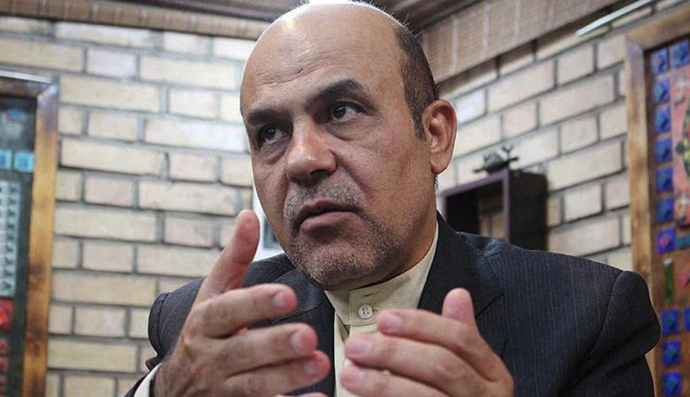Alireza Akbari: the British-Iranian executed by Tehran
Reuters
Prime Minister Rishi Sunak called it “a callous and cowardly act carried out by a barbaric regime with no respect for the human rights of their own people”.
Iran has executed British-Iranian national Alireza Akbari, the judiciary’s Mizan news agency reported on Saturday, after sentencing the former Iranian deputy defence minister to death on charges of spying for Britain.
Here are some details about Akbari and his case:
– He fought during the Iran-Iraq war in the 1980s in the ranks of the Revolutionary Guards and had a commanding role in developing Iranian strategy in the conflict, according to an audio recording purportedly from Akbari and broadcast by BBC Persian on Jan. 11.
– He served as deputy defence minister when Ali Shamkhani was minister from 1997 to 2005, part of the administration of reformist President Mohammad Khatami. He had been a close ally of Shamkhani – currently the secretary of Iran’s Supreme National Security Council – since the Iran-Iraq war in the 1980s.
– He served in other security roles including as an advisor to the Iranian navy, and led the implementation of U.N. resolution 598 that ended the Iran-Iraq war in 1988.
– According to a caption in a video aired by Iran’s state news agency IRNA on Thursday, Akbari moved to Britain after being briefly detained and released on bail in 2008. Reuters could not verify if Akbari had moved to Britain in 2008, or when he returned to Iran.
– He was arrested in 2019. In the audio recording broadcast by BBC Persian, he said he had returned to Tehran following an invitation by a senior Iranian diplomat involved in Tehran’s nuclear talks with world powers.
In the recording, he said security authorities pressured judges to issue a sentence carrying the death penalty against him. “The tribunal agreed to release me on a low bail but the Intelligence Ministry stopped that. The Supreme Court voted against the death pnalty, but the Intelligence Ministry imposed its will by threatening the judge.”
His wife, Maryam Samadi, told BBC Persian he was put in solitary confinement for 10 months, before being moved to Tehran’s Evin prison, where Iran has incarcerated other dual nationals.
– In the audio recording, Akbari said he had made false confessions as a result of torture. “With more than 3,500 hours of torture, psychedelic drugs, and physiological and psychological pressure methods, they took away my will. They drove me to the brink of madness…and forced me to make false confessions by force of arms and death threats,” he said.
“They would tell me: ‘If you resist, we will send you to the dark cells of Evin prison where you’ll face an interrogator with a whip.'”
– Iranian state media broadcast a video on Thursday that they said showed that Akbari played a role in the 2020 assassination of Iran’s top nuclear scientist Mohsen Fakhrizadeh, killed in a 2020 attack outside Tehran which authorities blamed at the time on Israel. In the video, Akbari did not confess to involvement in the assassination, but said a British agent had asked for information about Fakhrizadeh.
– Britain, which had declared the case against Akbari as politically motivated and called for his release, condemned the execution. Prime Minister Rishi Sunak called it “a callous and cowardly act carried out by a barbaric regime with no respect for the human rights of their own people”.
– French Foreign Minister Catherine Colonna summoned Iran’s charge d’affaires in Paris on Saturday over the execution of a British-Iranian national accused of spying, expressing its indignation about the case.



